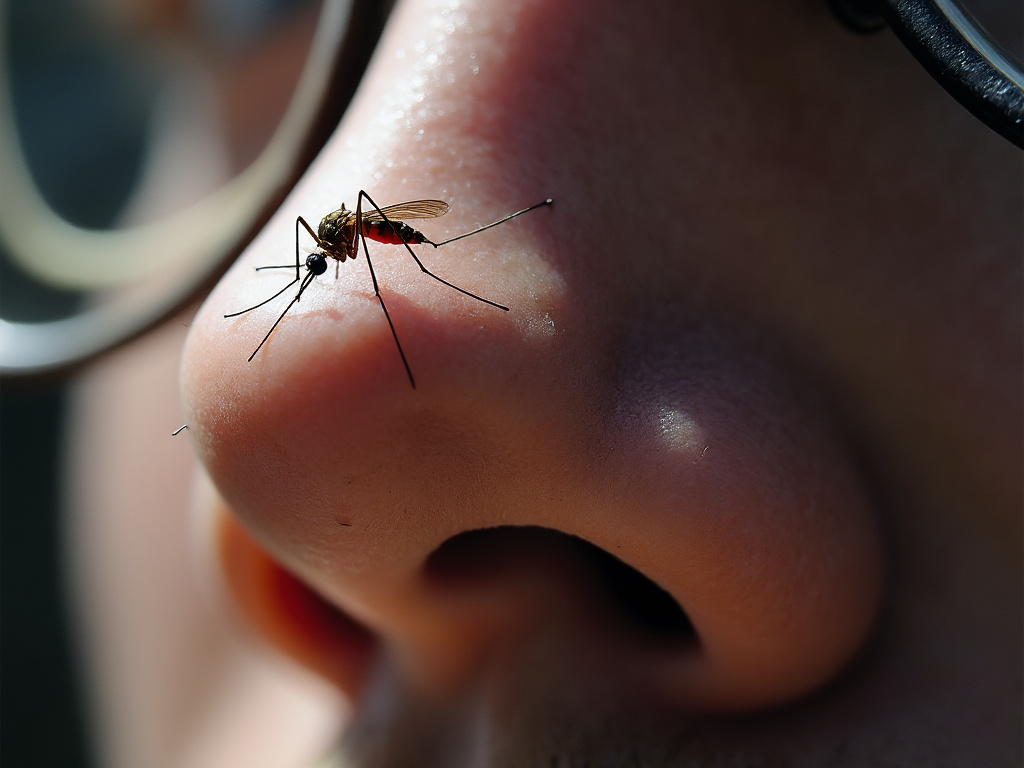In a surprising twist to the symptoms associated with the Chikungunya virus, a condition known as ‘Black Nose Disease’ or ‘Chik Sign’ has been reported among some infected individuals, particularly highlighted by a recent case in Chennai. This phenomenon, while not entirely new, has garnered significant attention due to its unusual presentation and the context in which it’s appearing.
What is ‘Black Nose Disease’?
‘Black Nose Disease’ refers to a rare post-inflammatory hyperpigmentation that occurs following a Chikungunya infection. This symptom, primarily affecting the nose, results in dark patches or speckled pigmentation, often developing weeks after the initial fever and rash subside. Medical professionals describe this as a cutaneous manifestation rather than a separate disease. According to reports, this pigmentation doesn’t cause discomfort but can be quite noticeable, leading to concern among affected individuals.
The Chennai Case:
A month-old baby in Chennai recently became the center of medical curiosity after developing dark patches around her nose shortly after her mother was diagnosed with Chikungunya. The mother’s infection was confirmed by a blood test, and post her recovery, the infant showed no other symptoms than fever and irritability, followed by the appearance of these dark spots. This case has been pivotal in bringing ‘Black Nose Disease’ into the public eye, emphasizing the virus’s ability to manifest in unexpected ways.
Medical Insights:
Dr. Sai Kiran Chilukuri, a noted physician, explained that the hyperpigmentation, while alarming, typically resolves on its own within six months. The exact cause of this pigmentation remains under investigation, but it’s believed to be a form of post-inflammatory hyperpigmentation triggered by the virus. The medical community has reassured that while visually striking, ‘Black Nose Disease’ poses no severe health risks and treatment generally involves simple skincare practices like using moisturizers.
Public Health Implications:
The emergence of ‘Black Nose Disease’ as a recognized symptom of Chikungunya could potentially aid in early diagnosis. However, it also underscores the need for continued research into viral mutations and symptom variations, especially in regions like India where mosquito-borne diseases are rampant. Health officials are using this opportunity to educate the public on preventive measures against mosquito bites, which remain the primary mode of transmission for Chikungunya.
Looking Ahead:
As Chikungunya continues to affect populations globally, with cases also noted in the United States, understanding these symptoms becomes crucial for both treatment and public health management. The ‘Black Nose Disease’ serves as a reminder of the unpredictable nature of viral infections and the importance of vigilance in medical observation and reporting.
For those experiencing symptoms or living in areas with known outbreaks, consulting healthcare providers remains the best course of action. Meanwhile, the medical community watches closely, learning from each new case to better combat this and other vector-borne diseases.
This article aims to inform the public about the unusual yet harmless ‘Black Nose Disease’ associated with Chikungunya, emphasizing the need for awareness and preventive health measures.











Add Comment